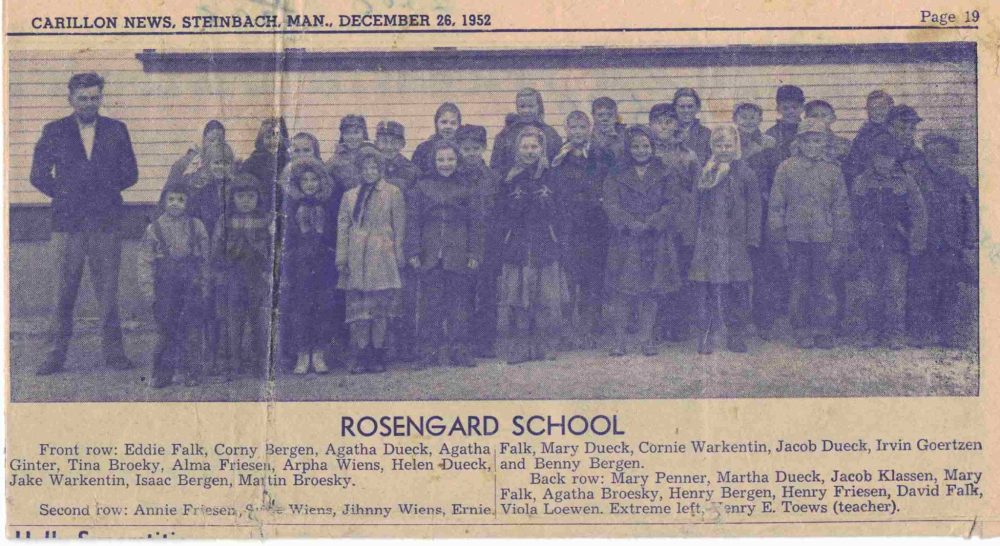COLUMN: Tale from the Gravel Ridge – The importance of the rule of law
Advertisement
Hey there, time traveller!
This article was published 17/08/2024 (295 days ago), so information in it may no longer be current.
When my classmates and I began our formal education at the Rosengard School in 1946, we were fortunate on numerous counts. Firstly, there was a school building that we could enter for 10 months of each year in order to receive instruction from a teacher who was qualified to teach. Our one-room rural school building was well constructed, with windows along the length of one wall. Two of the indoor walls of our school were covered with blackboards, where lessons and notices could be written with chalk.
Our school was adequately equipped with desks and benches for all of us. There was a large wood-burning stove in one corner of the room, which, being stoked by the teacher, kept us comfortably warm during the long months of a cold prairie winter. A sturdy earthenware vessel, filled with water from the well on the school property, was situated at the back of the classroom, providing fresh drinking water for all of us.
In addition to a proper school building, we were also provided textbooks in various subjects, as well as notebooks, and pencils, pens and ink with which to write, and chalk for use on the blackboard.

Our school was located on a large parcel of land which was situated on a gravel ridge, and it was on these grounds that we were privileged to engage in all manner of games, and sports activities, both well thought-out ones as well as those that were unstructured.
Neither girls nor boys were excluded from a formal education at our school, nor from playground activities.
It is necessary to enumerate such details, when few among us can even envisage the above scenario. Perhaps, for that reason alone, we need to remind ourselves that such a learning environment is beyond the reach of many in our global world. While it is very difficult to imagine our circumstances in any other way than what we have become accustomed to, we should, from time to time, reflect on how easily circumstances can change. We know that many the world over are trying desperately to shield their children, and the elderly in their midst, from instabilities and atrocities that have come upon them, sometimes quite unexpectedly.
We in our country enjoy incredible rights and freedoms. If we have grown up in Canada, as I have, it is all too easy to take for granted all that we have been given. We must not allow ourselves to be complacent about these rights. Rights and privileges can be lost.
Much of what we learned during our education in Rosengard was quite unfamiliar to us, and this was likely so for children across our country. Nevertheless, we were provided with textbooks that opened our minds to other parts of the world and other times, including the lives of those who lived in those places. In that sense, we were exposed to history.
The history textbook in our middle school years was entitled Builders of the Old World. As is the case with many textbooks, this book went into a great deal of detail. One of the many subjects covered in this history textbook was that of Magna Carta, a document signed by King John III of England on June 15, 1215. Among its many lessons was the concept that the king is not above the law.
The school children of Rosengard those many decades ago became familiar with the term Magna Carta. The consequences of that action on the part of the barons, who forced the king to sign the document, has powerful implications for Canada to this day. Indeed, Magna Carta forms the basis for freedom, democracy and the rule of law in our country.
Inherent in the concept of the rule of law, is that all Canadians are entitled to the rights and freedoms our Canadian Constitution offers. We need to take these protections seriously, because those rights can easily be incrementally eroded. And once lost, these rights are not readily regained, if ever.
